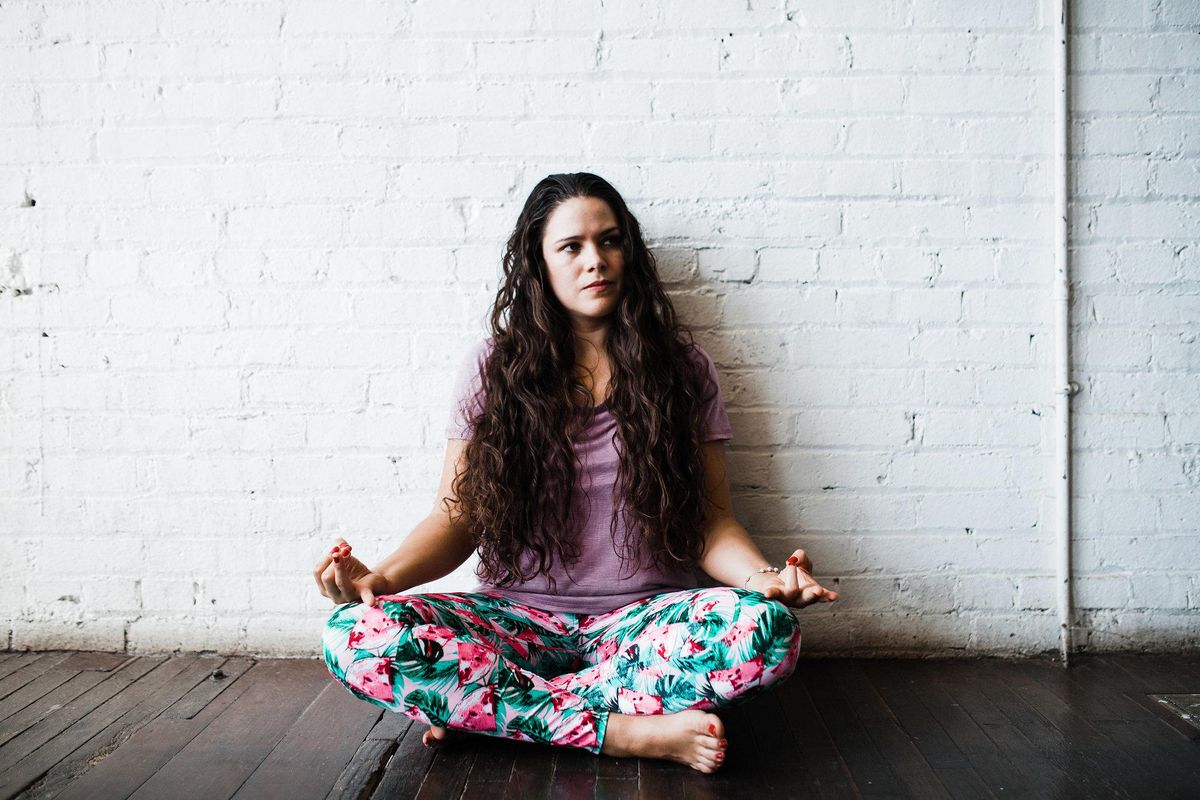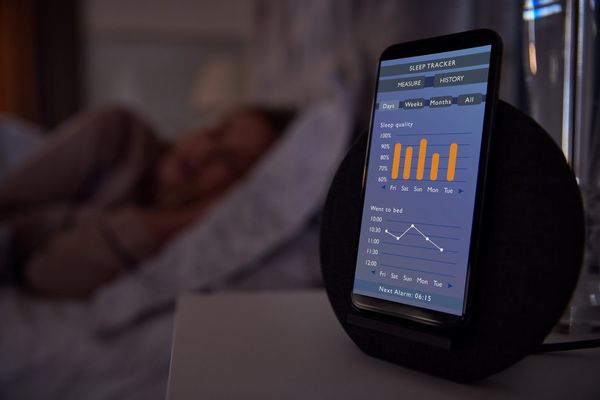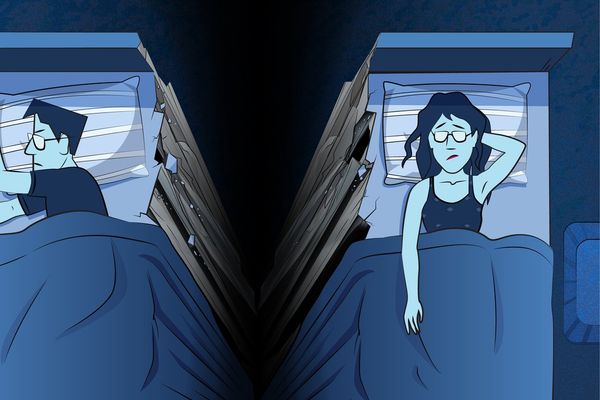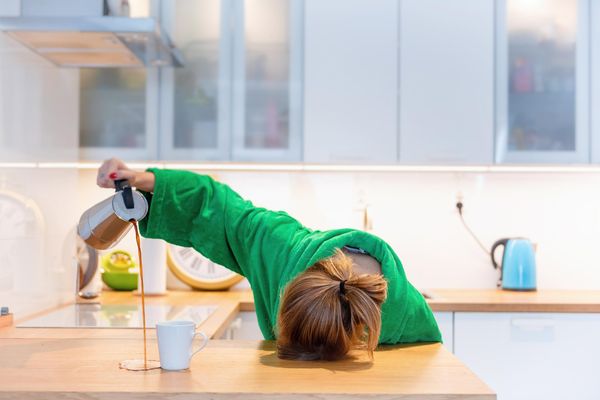As told to Erica Rimlinger
The night we buried my father, I didn’t sleep. The second night after his death, I walked until I was exhausted, and I didn’t sleep. The third night, my brain buzzed with an incredible, spiritual connection to my father. I outlined three books and four business ideas, and I didn’t sleep. The fourth night after my father’s death, I didn’t sleep — and I was getting very, very scared.
From a young age, I was a problem-solver and a caretaker. I understood my place in the world was to make other people happy and support the people around me. Growing up in a very small town in Mexico, I was the second of 10 children and the first person in my family to get a college degree. I attended the best university in Mexico on a basketball scholarship. I piled on roles and responsibilities and was rewarded with the love and respect of others and myself. I was happy. Or, I should have been.
In reality, I was stressed out most of the time, but I didn’t have the time or inclination to delve too deeply into that or my occasional insomnia. That’s why they make Tylenol PM, right?
In college, I visited Beijing and vowed to return after graduation to live, work and study Mandarin. I arrived in China on the 2010 Chinese New Year. Beijing was extraordinary, the people were friendly, the food was delicious, and I registered at the Mexican embassy so I could meet other expats and maybe get invited to some cool parties.
I got an internship at the Mexican embassy, enrolled in school and started dating a man who lived in Sweden. I loved the Chinese culture and worked hard to learn the language. I worked so hard at my studies, in fact, that I never guessed I had dyslexia. Nobody did. There was no challenge I couldn’t push through. So, I pushed. Already bilingual in English and Spanish, I became fluent in my third language. I was beginning to experience symptoms of depression, but I ignored them. Sometimes I had insomnia. I took a Tylenol PM. Or I’d double the dose.
I married my boyfriend. Since he lived in Sweden, I packed up and left China to live in another new country, determined to learn my fourth language and be the best wife possible. A year later, his job took us back to Beijing. At the beginning, it was lovely to be back and we had a loving relationship. Then he started traveling a lot, and I found myself alone, homesick, stressed and unable to sleep. I was drinking Tylenol PM by the bottle. Nothing happened. Sleep rarely came, and when it did, it was doled out in a fitful hour or two.
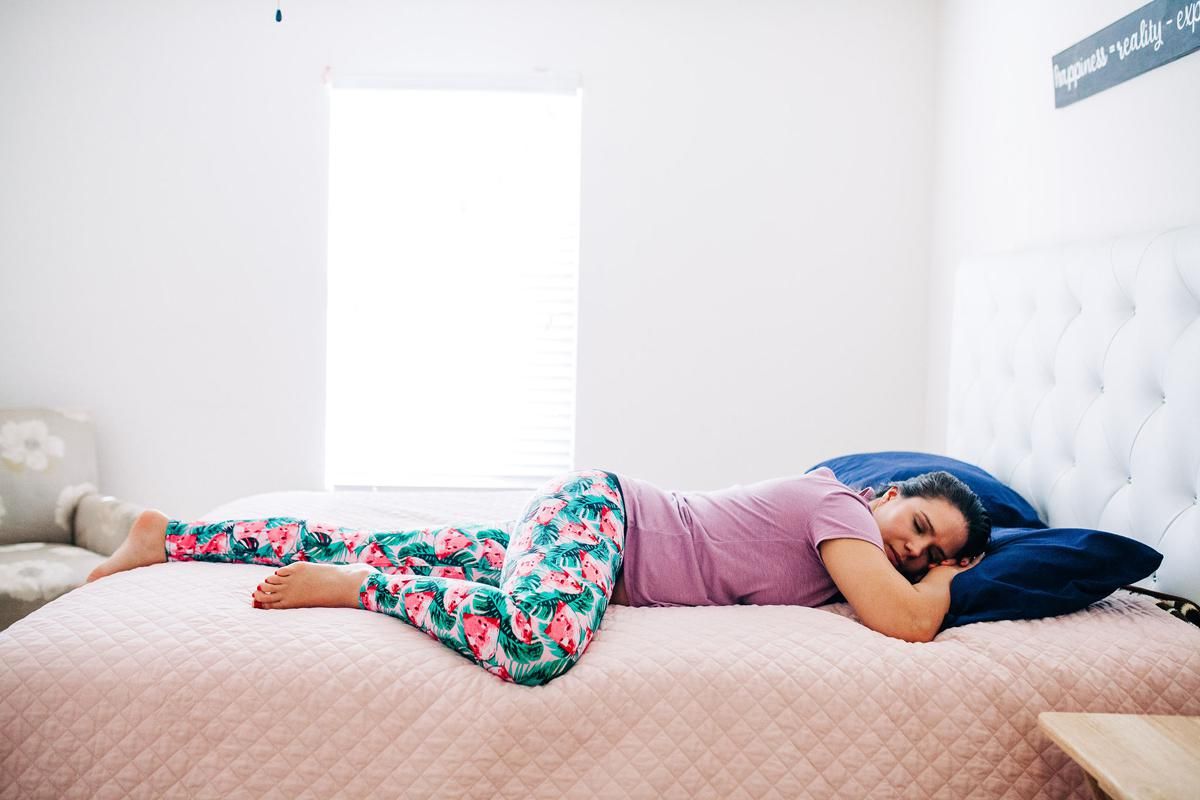
By our second year in Beijing, I couldn’t get out of bed. I was exhausted but couldn’t sleep. I could will myself over any obstacle, but not this. My husband and I were fighting a lot and I felt sick all the time. I didn’t understand the physical toll stress and sleeplessness were taking. I considered myself not just healthy, but super healthy, but now injuries and illnesses that should have been minor sent me regularly to the hospital. If I could just make something work, I thought, I could push through this. But nothing in my body, my marriage, my life was working.
I finally saw a psychiatrist who diagnosed me with depression. I met a yoga therapist who taught me to acknowledge my feelings and take ownership of them. I felt calm, present and less angry. I felt better, and I started sleeping again.
Friends and family had been asking my husband and me when we’d have kids. At that point, I realized I did want to have kids someday, but not with my husband. We divorced, and I moved back to Mexico and then to the United States, where I started training to become a yoga therapist.
Shortly after that is when my father became ill and passed away, and the grief and shock retriggered my insomnia so badly that I didn’t sleep for four days. After the fourth day, my family took me to a psychiatrist who gave me a course of antidepressants and sedatives. Gradually, I was able to lower my medications until I was able to sleep again. I finished my yoga therapist certification with more insight into my responses to stress.
In my time of great stress, I’d fallen back into my old patterns of perfectionism. I believe that women are particularly vulnerable to perfectionism and to putting other people’s needs before their own. When life gets stressful, it’s the perfectionistic thoughts that bubble up, the self-critical thoughts that tell me I should be sleeping, I could be sleeping if only I tried harder and got it right.
But the speech flight attendants give before every flight is correct: You have to put the oxygen mask on yourself before helping your loved ones with theirs. If you want to be kind to others, you must be kind to yourself first.
My own sleep problem was multifaceted, and so was the solution. Today I journal, I meditate, I move, and I allow myself to heal on my own terms. I no longer rush myself or push myself. I take life in baby steps, and I simplify. Little by little, I’m doing better. I don’t have all the answers, but it turns out you don’t need all the answers to be able to sleep at night.
- Treatment Options for Insomnia ›
- Sleep Disorders - HealthyWomen ›
- Insomnia Isn't Just an Annoyance. It Can Have Serious Effects on ... ›
- Clinically Speaking: Questions and Answers About Insomnia ... ›

